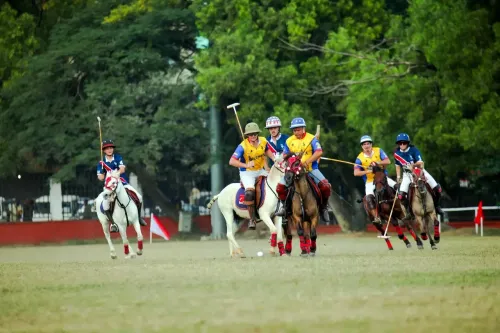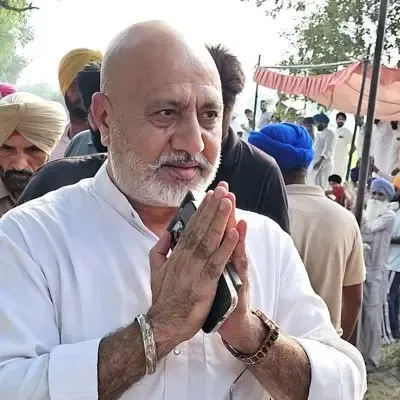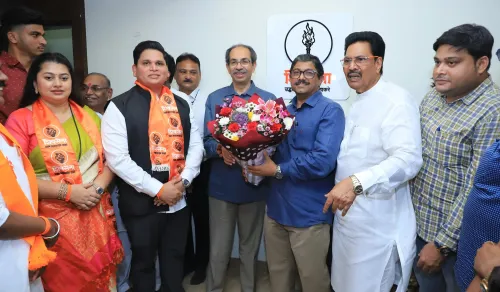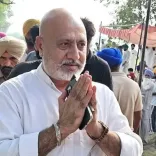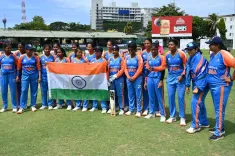Did Parliament Just Reform Sports Administration and Doping Oversight to Win the 2036 Olympics?
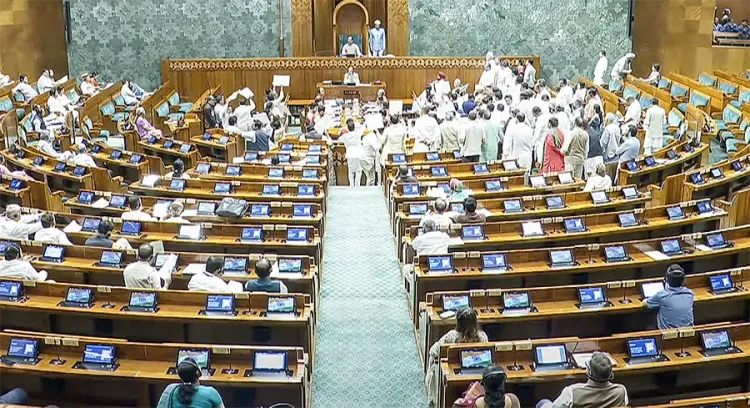
Synopsis
Key Takeaways
- National Sports Governance Bill aims for ethical governance.
- National Anti-Doping Bill aligns with global standards.
- Introduction of a National Sports Tribunal for dispute resolution.
- Focus on women’s representation in sports federations.
- Legislative changes enhance India’s Olympic prospects.
New Delhi, Aug 12 (NationPress) The Rajya Sabha on Tuesday enacted the National Sports Governance Bill, 2025, along with the National Anti-Doping (Amendment) Bill, 2025. This legislative milestone signifies a pivotal change in India's approach to sports administration, significantly bolstering its aspirations for hosting the 2036 Olympic Games.
The Lok Sabha had previously cleared these Bills. Union Sports Minister Mansukh Mandaviya characterized them as groundbreaking measures designed to enhance ethical governance, prioritize athlete welfare, and ensure institutional accountability in the nation’s sports sector.
The debate saw a momentary interruption when Leader of the Opposition Mallikarjun Kharge attempted to voice concerns regarding the Special Intensive Revision (SIR) of Bihar’s electoral rolls. Chairperson Sasmit Patra expunged Kharge’s comments after a ruling from Leader of the House J.P. Nadda, deeming them irrelevant to the legislative matters being discussed. Following this, the Opposition staged a walkout.
One of the most impactful speeches came from Olympian P.T. Usha, who is a nominated member and President of the Indian Olympic Association. She shared a poignant memory from the 1984 Los Angeles Olympics, stating, “I missed the bronze by one-hundredth of a second. My heart broke not for myself, but for an entire generation of Indian athletes who had the strength and courage, but lacked the system.” She emphasized, “This Bill is not just about governance - it is about justice and fair play.”
Prafull Patel from the NCP (Maharashtra) expressed that “Every athlete’s voice will now be heard,” highlighting that the proposed tribunal would ensure quick resolution of disputes. He added that the reforms will help India realize its Olympic ambitions, particularly for the 2036 Games.
“Every single sports federation is mired in legal cases. Courts take their own time. This tribunal will change that,” he said, pointing to the Bill’s emphasis on women’s representation in sports federations.
Ayodhya Rama Reddy Alla of the YSR Congress Party praised the Bill for its clarity and potential to create a unified framework for national and regional sports federations. Other supportive voices included members from the BJP and TDP, who echoed the importance of these reforms.
The National Anti-Doping (Amendment) Bill, 2025, was also passed, aiming to synchronize India’s anti-doping protocols with global standards set by the World Anti-Doping Agency (WADA). This amendment guarantees operational independence for the National Anti-Doping Agency (NADA) and addresses previous concerns regarding government interventions.
The Sports Governance Bill aims to create a consolidated legal framework for promoting and developing sports while adhering to principles of transparency, fair play, and international standards. It aligns with the Olympic and Paralympic Charters and introduces a National Sports Board to oversee and recognize sports federations, with the authority to de-recognize those with electoral irregularities or financial mismanagement.
Significantly, the Bill proposes a National Sports Tribunal, which will be chaired by a current or former Supreme Court judge, to handle disputes related to athlete selection, governance issues, and federation elections. Decisions from this tribunal can only be appealed in the Supreme Court, ensuring a faster and more specialized judicial process for athletes.
With the passage of both Bills, India takes a decisive step toward establishing a transparent, accountable, and globally competitive sports ecosystem, promising not only medals but also dignity, fairness, and institutional support for every athlete.
After Minister Mandaviya’s motion for passage, the proposal was considered by Surendra Singh Nagar, and the Bill was adopted without opposition, through a voice vote.

